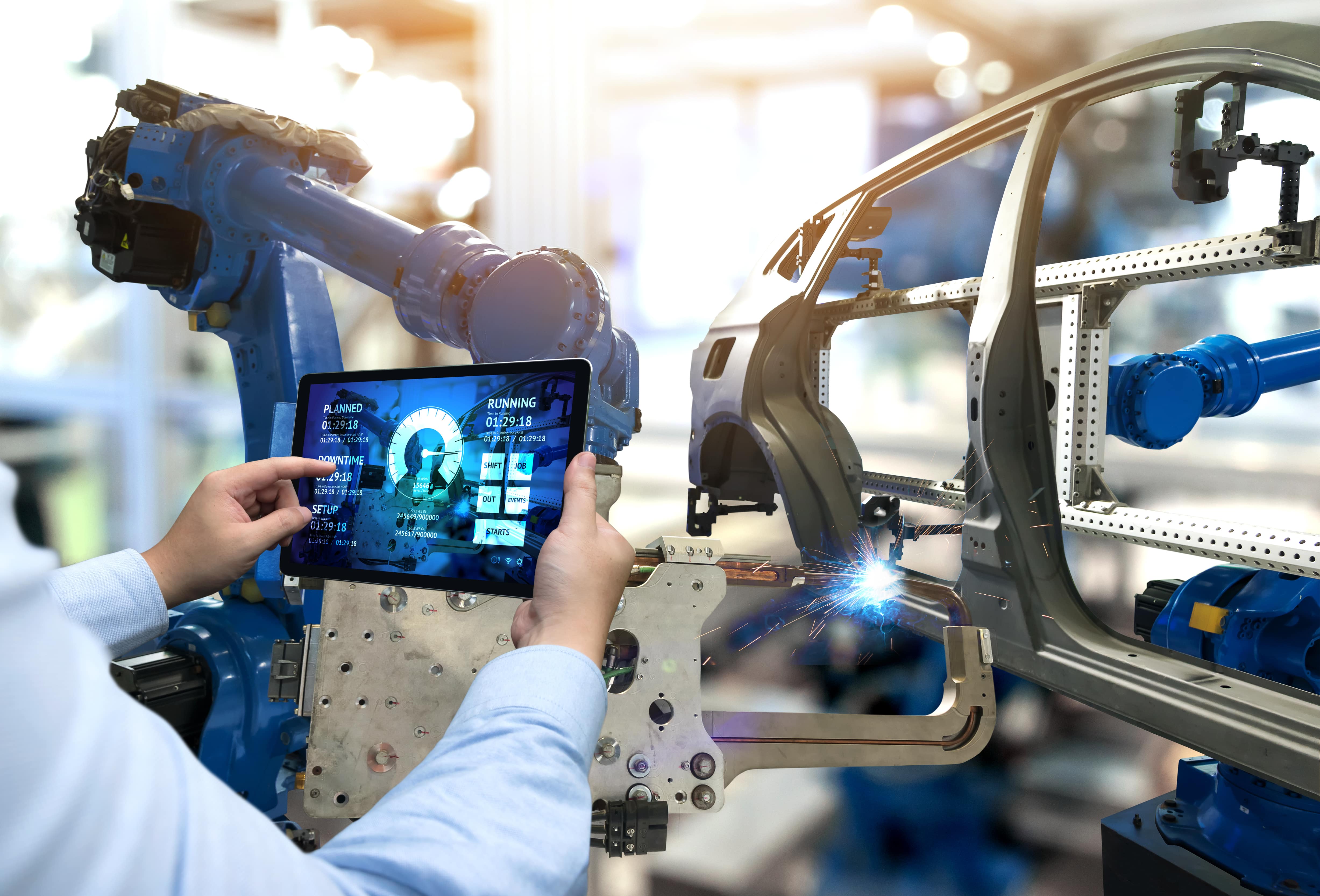Unlocking the Value of Manufacturing Automation

Is the rise of machines on the manufacturing floor to be welcomed or feared? Find out how manufacturing automation is transforming factories for the better.
No longer confined to design, engineering, and supply chain operations, manufacturing software has gained ground on manufacturing floors, allowing machines to perform rote and repetitive tasks. Learn more about the types of manufacturing automation, its benefits, and how it is transforming the skills required in today’s workplace.
Types of automation
Manufacturing automation falls into three categories: fixed, programmable, and flexible. Each type has its advantages and disadvantages.
The benefits of automation in manufacturing
While the initial investment may be significant, automation offers great value for money. One machine can do the work of several employees, helping to lower operating costs. Furthermore, the machines can work 24/7 at a consistent speed, increasing productivity. In general, machines can complete tasks with greater accuracy, enabling better product quality. The system can perform tasks that involve hazardous processes or substances, improving safety in the workplace.
Most importantly, it frees employees from repetitive, time-consuming tasks so they can focus on value-added activities and human skills that AI, robotics, and software automation can never replicate.
(Also read: Industry 4.0: How to Make Manufacturing Future-Proof)
New skills for a new era
Technological advancements and powerful algorithms have many worrying about becoming redundant or obsolete in the workplace. But history has shown us that humans continue to adapt and persevere, embracing new skills and finding room to grow and flourish in their fields.
The pandemic has fueled technological adoption and transformed the world of work, making human skills such as creativity, empathy, and problem-solving even more crucial to a company’s success.
(Also read: Industry 4.0: Skills for the Future of Work)
Maximizing technology and people
To unlock the power and potential of automation, organizations must give equal attention and consideration to processes, systems, and people. A comprehensive and holistic transformation program must address and involve every level of the organization.
Companies should customize their training to align with their company’s goals and the specific educational needs of each employee. As they understand how automation will change their daily working life for the better, they are more likely to embrace this technology instead of fearing it.
When a company upskills its workforce, it can retain employees who already have a deep knowledge of the business and have proven their loyalty to the company’s vision. It also shows your workforce that you are committed to their long-term growth and success, thus nurturing a more positive work environment.
As history has shown us, technology is only half of the equation. Organizations still need skilled, motivated, and enthusiastic leaders and employees to encourage innovation and drive growth.
At IMI we combine both forces to streamline processes and ensure that products are assembled to perfection, and always guaranteeing consolidation according to the market sector
As one of the Top 21 EMS companies in the world, IMI has over 40 years of experience in providing electronics manufacturing and technology solutions.
We are ready to support your business on a global scale.
Our proven technical expertise, worldwide reach, and vast experience in high-growth and emerging markets make us the ideal global manufacturing solutions partner.
Let's work together to build our future today.



